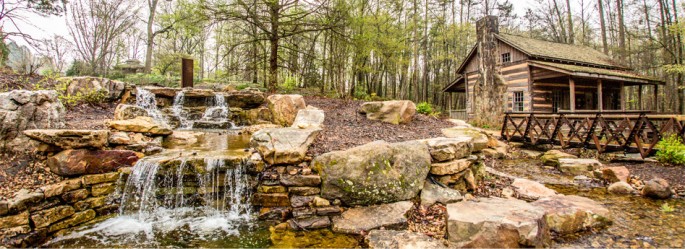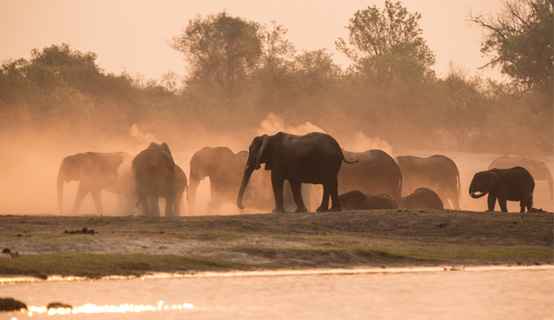In the much acclaimed partnership between the advocates of ecological sustainability and of development, who is going to lead whom? This is the all-important question to ask about the new path that so many want us to take. I fear that in the partnership it will be ‘development’ that makes most of the decisions, and ‘sustainable’ will come trotting complaining only about the pace of travel.
Anthropologist Marvin Harris argues in his study of human culture, Cannibals and Kings, that all through both prehistory and history we can find only a few human societies that were able to sustain their technology, organization , economic patterns, and institutions for even a few centuries. Again and again, societies ran out of the critical resources on which they depended or they degraded their supporting environment to the point of crisis, requiring a revolutionary response. Harris argues that all the world’s cultures have had their origin in a repeated failure of sustainability.
If we cannot expect to achieve a perfect sustainability that lasts forever, what can we hope for and work toward? What degree of sustainability should we settle on?
In the absence of any clear idea of what a healthy nature is, or how threats to that collective biological whole might impinge on us, we will end up relying on utilitarian, economic, and anthropocentric definitions of sustainability. Sustainability is, by large, an economic concept on which economists are clear and ecologists are muddled.

I find the following deep flaws characteristic of the sustainable development initiative.
First, it is based on the view that the natural world exists primarily to serve the material demands of the human species. Nature is nothing more than a pool of ‘resources’ to be exploited; it has no intrinsic meaning or value apart from the goods and services it furnishes people , rich or poor. The Bruntland Report makes this point clear on every page: the ‘our’ in its title refers to people exclusively, and the only moral issue it raises is the need to share what natural resources there are more equitably among our kind, among the present world population and among generations to come. That is not by any means an unworthy goal, but it is not adequate to the challenge.
Second, sustainable development, though it acknowledges some kind of limit on this material demands, depends on the assumption that we can easily determine the carrying capacity of local regional ecosystems. Our knowledge is supposedly adequate to reveal the limits of nature and to exploit resources safely up to that level. In the face of new arguments suggesting how turbulent, complex and unpredictable nature is, that assumption seems highly optimistic.
Furthermore in light of the tendency of some leading ecologists to use such arguments to justify a more accommodating stance toward development, any heavy reliance on their expertise seems doubly dangerous; they are experts who lack any agreement on what the limits are. A bunch of birdwatchers!
Third, the sustainability ideal rests on an uncritical, examined acceptance of the traditional world view of progressive, secular materialism. It regards that worldview as completely benign so long as it can be made sustainable. The institutions associated with that worldview, including those of capitalism, socialism, and industrialism, also escape all criticism, or close scrutiny. We are led to believe that sustainability can be achieved with all those institutions and their values intact.
As can be seen from the analysis of the idea embodied within sustainable development, it is not surprising that it is a contested concept. Almost all the themes of environmental ethics and political thought are played out within this conceptual space. Different conceptions or interpretations of sustainable development offer competing interpretations of the constituent idea and then prioritize them in different ways. Thus, for example, ecological modernization places great emphasis on the importance of economy-environment integration, but holds that such integration can take place within a (green) capitalist framework; participation is interpreted as including major ‘stakeholders’, government, industry and mainstream environmental organizations within the policy process.

We must make our first priority in dealing with the earth’s careful and strict preservation of the billion-year old heritage achieved by the evolution of plant and animal life. We must preserve all the species, sub species, varieties, communities, and ecosystems that we possibly can. We must not, through our actions, cause any more species to become extinct. To be sure we cannot stop every deaths or extinction, since the death of living things is part of the inevitable workings of nature. But we can avoid adding to that fateful outcome. We can stop reversing the process of evolution, as we are doing today. We can work to preserve as much genetic variety as possible. We can save endangered habitats and restore those needed to support that evolutionary heritage. We can and must do all this primarily because the living heritage of evolution has an intrinsic value that we have not created but only inherited and enjoyed.
That heritage demands our respect, our sympathy, and our love.
Unquestionably, we have the right to use that heritage to improve our material condition, but only after taking, in every community, every nation and every family, the strictest measures to preserve it from extinction and diminution.
To conserve that evolutionary heritage is to focus our attention backward on the long history of the struggle of life on the planet. We need to appreciate the past, learn humility in the presence of an achievement that overshadows all our technology, all our wealth, all our ingenuity, and all our human aspirations.

To conserve that heritage is to put other values than economic ones first in our priorities: the value of natural beauty, the value of respectfulness in the presence of what we have not created, and above all the value of life itself, a phenomenon that even now, with all our intelligence, we cannot really explain.
To learn truly to cherish and conserve that heritage is the hardest road the human species can take. It does not even sound realistic at this point, given the global politics, to expect most nations to be ready or willing to take it. But it is surely the right path; while following the ambiguities, compromises and smooth words of sustainable development may lead us into quicksand.

